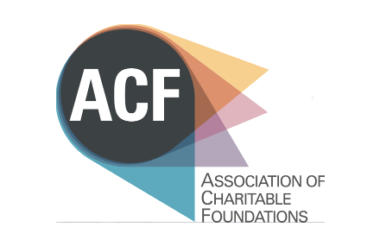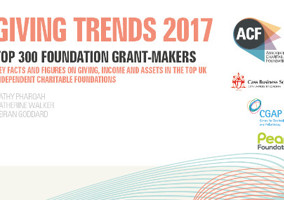Grant making by charitable foundations is “now comparable with grants to charities made by government”, according to the chief executive of the Association of Charitable Foundations.
Speaking at the launch of its Giving Trends report in London yesterday, Caroline Mack, chief executive of the ACF, said the findings of the report showed that grant making by charitable foundations in the UK last year was now comparable to those made by government.
Mack said this raised “important issues” for the sector, as it was impossible for charitable foundations to ever truly plug the funding gaps left by the government in what “continue to be austere times”.
“Grant making by charitable foundations is now comparable with grants to charities made by government. This raises important issues for ACF, and important issues for the grant making sector as a whole to consider.
“How can we best support our grantees in what continue to be austere times? How can we bring our influence and expertise to bear on funding practices within government? How can we use our independence, and collective resources, to better support the future of civil society, and for social good?”
'No longer the icing on the cake'
Mack said the report showed that, in many parts of the UK, charitable foundations are no longer “the icing on the cake. In many cases, we are now the cake”.
The report showed that large foundation made a record £2.9bn worth of grants in the last financial year, a 12 per cent growth from the previous year. Across all foundations total spending was estimated at £6.5bn. The report said foundation grant making is now "equal to 43 per cent of total government spending in the voluntary sector, including contracts”.
Cathy Pharoah, co-director of the Centre for Charitable Giving and Philanthropy Research at Cass Business School and co-author of the report, was keen to play down the comparability of foundation grant making to that of the government.
Pharoah said that many grants made by charitable foundations, in areas like the arts for example, were made to organisations not registered with the Charity Commission, which made comparing like for like with government spending hard.
Few new large foundations being set up
Commenting on the findings in the report, Paul Ramsbottom, chief executive of the Wolfson Foundation, said that while he took heart from the top-line growth figures across the 300 foundations, he said he was struck by “how few large organisations now appear to be being set up”.
He said much of the growth documented in the report came from “internal growth in existing organisations”, as a result of investments increasing on the back of a weak pound.
He said while the report tells an “exciting story” in terms of growth, he said it also showed potential “stagnation” in the foundation sector as well.
“The first point to make is that this, albeit very welcome growth, is effectively internal growth in existing organisations. One of the striking things about the report is how few large organisations now appear to be being set up.
In Fundraising Magazine
“If we take the top 15 foundations, one is from the 17th century, two are from the inter-war period and the very large majority of the rest were set up in the golden period for foundations between the end of the Second World War and around 1975.
“My point is that this is a report which, to some considerable extent is about old money being put to contemporary use. The report tells an exciting story of growth, but there’s also potentially a more sobering story of stagnation which sits alongside that. There are it seems relatively few new sources of major giving within British society.”
Ramsbottom also said the increase in spending in the last 12-months was due in large part to a number of larger foundations choosing to “spend out” their endowments, which meant those funding sources would be coming to an end, with few new organisations being set up to fill the gap.
Related Articles












